Nation ‘well-armed’ to keep growth on track
Updated: 2015-03-16 04:52
By CHEN JIA(China Daily)
|
||||||||
 |
|
Premier Li Keqiang meets domestic and overseas journalists at the Great Hall of the People in Beijing on Sunday after the annual national legislative session ended. [Photo by Wu Zhiyi / China Daily] |
Premier says slowdown will not derail plans to increase jobs and incomes
Premier Li Keqiang said on Sunday that China has many weapons to fight difficulties in its economy and will be able to maintain its growth momentum. He did not say specifically how China will achieve its annual GDP growth target, but said he will not allow the slowdown to continue from last year and derail the plan for increases in employment and incomes.
Li was speaking at his news conference at the end of the National People's Congress annual session.
The key to China's success this year will be to balance growth and reform — namely growth in regular business and reform of the economic structure, the premier said.
Despite the downward pressure the country faces, the government favors mainly using long-term measures, such as more reform and more innovation, to sustain growth, Li said.
China has not provided a strong short-term stimulus to the economy for the past few years and has an ample stock of “policy weapons” that can be used when necessary to prevent the slowdown from worsening, Li said.
If the growth rate falls below the government's desired range to affect employment and national income levels, it will adopt more short-term measures to boost market confidence.
This year, more reform measures will be introduced to provide a level playing field for more enterprises and for what Li called “mass entrepreneurship”.
This will include a ban on administrative powers outside the law, cutting 200 requirements needing official approval on top of many such cuts in the past two years, publishing a list of powers and responsibilities for all provincial-level governments, and experimenting with new ways for the public to lodge complaints and to supervise the government.
Regarding innovation, Li said that even though all brilliant ideas stem from society, they still need the government to provide the necessary guarantees.
These include removing institutional barriers, designing tax incentives, providing guidance on startup financing, and a willingness to help young people with poor family backgrounds succeed.
Li Yang, vice-president of the Chinese Academy of Social Sciences, said the key components of the government's “bottom line” are 7 percent GDP growth, a stable increase in job opportunities and no social unrest.
In his Government Work Report to the NPC two weeks ago, Li said targeted GDP growth this year will be “around 7 percent”, down from 7.5 percent last year.
Weak economic data in the first two months of this year indicated a continuing downturn, with industrial output, fixed-asset investment and retail sales of consumer goods all retreating to multiyear lows.
Qu Hongbin, chief China economist at HSBC Holdings, said more measures could be taken by the government to stabilize growth, “but it is essential to use the measures at the right time with proper strength”.
The People's Bank of China, the central bank, cut benchmark interest rates by 25 basis points on March 1, in an attempt to arrest the economic slowdown.
But interest rates are still at a high level, and the rate cut lagged behind the slowdown, Qu said, adding that he expects more policy easing, if not another interest rate cut, soon.
Wang Tao, chief China economist at UBS, said more policy easing is already on the way, as social financing in February rose by 1.35 trillion yuan ($215.75 billion), stronger than many economists expected.

 The CeBIT trade fair opens in Germany
The CeBIT trade fair opens in Germany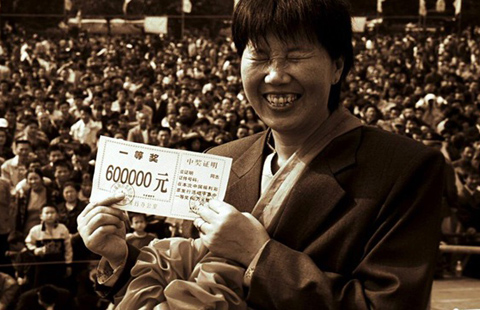
 Now and then: Lottery dream fading
Now and then: Lottery dream fading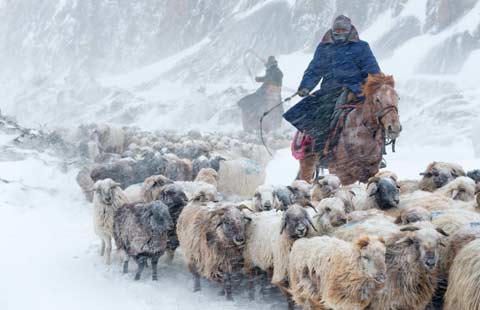
 Braving the snow for greener pastures
Braving the snow for greener pastures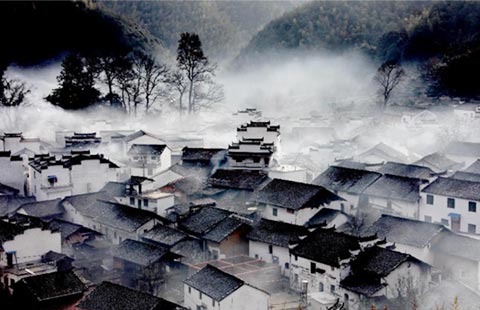
 Special: Preserve the past to live the future
Special: Preserve the past to live the future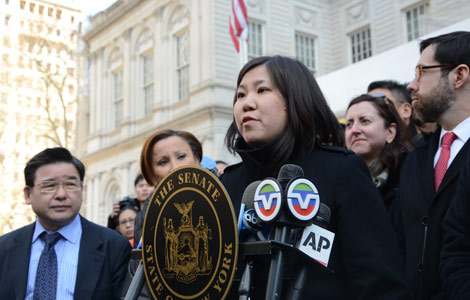
 Push for Lunar New Year school holiday
Push for Lunar New Year school holiday
 Bruce Lee's legacy promotes Kungfu in LatAm
Bruce Lee's legacy promotes Kungfu in LatAm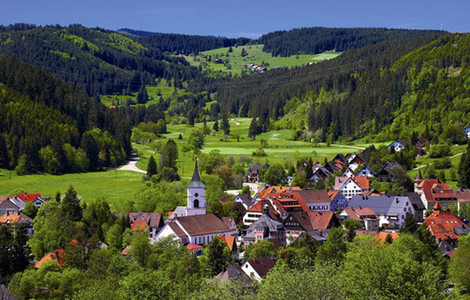
 Germany's Black Forest: a popular holiday destination
Germany's Black Forest: a popular holiday destination
 Sea of color at Shenzhen race
Sea of color at Shenzhen race
Most Viewed
Editor's Picks

|

|

|

|

|

|
Today's Top News
Mutual respect, interests key to US relations
US targets vocational schools in visa crackdown
Washington pitched to tourist
China, Myanmar investigate deadly bombing in Yunnan: FM
Foreign investment restrictions
to be cut
Taking the fight to the terrorists
Action to be taken if deadly bombing happens again
New bureau set to boost graft fight
US Weekly

|

|







